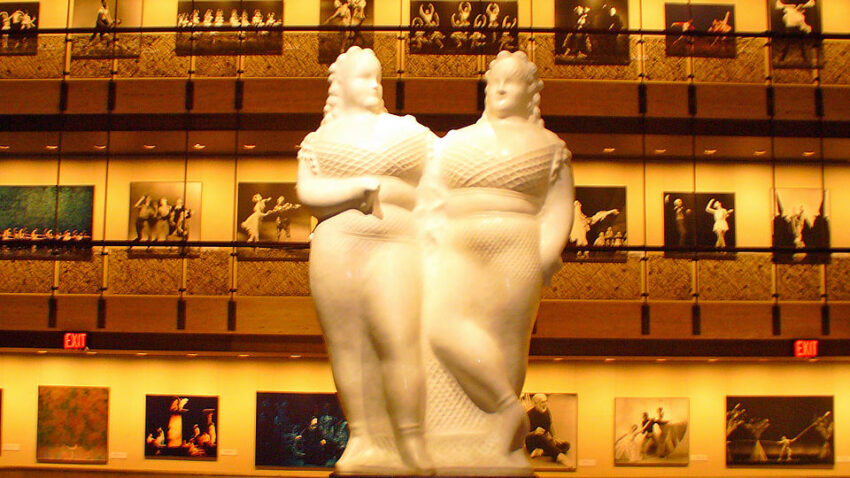Ras Baraka, the mayor of Newark, was arrested yesterday:
Authorities arrested Newark Mayor Ras Baraka for allegedly trespassing and ignoring warnings from the feds to leave an ICE facility.
The facility holds alleged violent criminals, such as MS-13 gang members and child rapists.
“Baraka reportedly entered the federal facility without authorization and refused to leave when ordered,” reported Shore News Network. “Homeland Security Investigations issued repeated directives for the mayor to remove himself from the premises, which he allegedly ignored.”
What a cause to choose.
Afterwards, he made this statement:
The U.S. attorney wasn’t there. She doesn’t know what happened. Clearly, that is not the context of what happened. I was there for over an hour in that space, and nobody ever told me to move. I was in there for over an hour, not a single person, not an officer from ICE, not any of the security guards. Nobody told me to leave that place.
Somebody from Homeland Security came in the end and began to escalate the situation, and we wound up being where we are today, and that’s frankly the extent of it. I didn’t go there to break any laws, I didn’t break any laws. I was there as the Mayor of the City, exercising my right and duty as an elected official, supporting our Congress people, preparing for a press conference that was supposed to happen there.
However, a video was released of the incident:
In the video, you can hear the Homeland Security agent asking Baraka to leave, and he also goes on to point out that multiple other warnings had already been given. …
Further, the fact that he was arrested outside the fence doesn’t change the fact that he was trespassing before that. If I break into your house but end up out on the lawn when police arrive, that doesn’t negate the crime that was committed.
Three House members – Democrats, of course – were also involved in the political theater. My guess is that Baraka was quite happy to be arrested so that he could claim he’s a persecuted hero.
When I first read the story, the name “Baraka” rang a bell, and it wasn’t just the resemblance to Obama’s first name. Back when Baraka had first been elected Newark’s mayor, in 2014, I wrote this post about him and his father. Here’s an excerpt:
So it appears that family, particularly Baraka’s father, and name recognition played a large part in Baraka’s victory. But in the entire 1000-word article, the Times somehow neglects to mention something I’d consider rather important about that family name, something that readers of a certain age (my age, to be exact) remember and that would enable newer readers to place Baraka’s father and understand who he was, and that’s his birth name, Leroi Jones, the name by which he first became famous as a “militant poet.”
The Times probably has good reason to leave this sort of thing out:
“Within the African-American community, some compare [Amiri Baraka, aka Leroi Jones] to James Baldwin and call Baraka one of the most respected and most widely published Black writers of his generation. Others have said his work is an expression of violence, misogyny, homophobia and racism. Baraka’s brief tenure as Poet Laureate of New Jersey (2002 – 03), involved controversy over a public reading of his poem “Somebody Blew Up America?” and accusations of anti-semitism, and some negative attention from critics, and politicians.”
If you follow the link to the poem you’ll find those accusations are hardly made-up, and you’ll find other examples on Baraka’s Wiki page to show that he was an equal-opportunity hater of almost everyone except black people, with “his advocacy of rape and violence towards, at various times, women, gay people, white people, and Jews.”
Unfortunately (or perhaps fortunately), the link to the poem that I originally provided is dead, and in a quick search I haven’t found the complete text of the poem anywhere. But there’s this:
The pushback was related to a poem he’d written in response to the September 11 attacks, “Somebody Blew Up America,” targeting forces of global oppression and singling out white men, who, according to Baraka, had committed the most crimes against humanity. Demanding its audience re-think assumptions, the poem fires a barrage of powerful statements and urgent questions, often in dramatic repetition: “Who? Who? Who?”
National public outcry against the work came after he read it at the 2002 Geraldine R. Dodge Poetry Festival in Stanhope, New Jersey. The poem includes the line “Who told 4,000 Israeli workers at the Twin Towers to stay home that day?” Accusing him of anti-Semitism, critics demanded he be removed from his post as New Jersey Poet Laureate. With no legal mechanism in place to unseat Baraka, the governor simply eliminated the position. The poet refused to apologize: “I don’t have regrets about writing the poem,” he said. “Because the poem is true.”
But really, his anti-Semitism was just the tip of a very large iceberg of hatred. See the plot of his 1964 play “Dutchman.” Part of the plot, which takes place on a subway (Clay is a young black man; Lula is a white woman:
Clay launches into a monologue. Clay suggests that whites let black people dance “black” dances and make “black” music. He explains that these segregatory actions assuage black Americans’ anger towards whites and distracts them from accessing the “white man’s intellectual legacy”. Clay states that if black people stopped trying to heal their pain through dance, music, civic participation, religion, or focusing on moving upwards in American society, and became coldly rational like white people, black people would just kill all the whites and be done with racism in America. Clay says that if he were to take Lula’s words to heart, he should just kill all the white people he meets.
Although Clay says all this, he deeply rejects this plan of action. He states that he does not want to kill and that he prefers to be ignorant of the problem. He says he would rather choose to pretend to be ignorant of racism, not try to get rid of it by fighting with whites.
Once Clay makes his confession, Lula changes strategies again. Clay makes as if to leave, but Lula coolly, rationally, stabs him twice to the heart. She directs all the other passengers, blacks and whites, in the train car to throw his body out and get out at the next stop.
How much of his father’s philosophy does Baraka the Younger share? I don’t know, but there’s this about his college days:
… [Ras Baraka] also began to synthesize his father’s militancy and start to define his own brand of activism. He was concerned about the apathy of his generation, that the Black movement his father and others had led in the ’60s and ’70s was foundering. He started a dorm-room meeting group, which in 1987 would provide security for Public Enemy when they visited the campus.
He transformed that group into a formidable student activist organization — Sons and Daughters of Panthers, later renamed Black Nia F.O.R.C.E. (Freedom Organization for Racial and Cultural Enlightenment), which met every Friday night on campus. The group’s philosophy was shaped, they said, by Martin Luther King Jr, Malcolm X and Louis Farrakhan — a wide variety, indeed. The structure and tone of the meetings were influenced by Nation of Islam and the Black Panthers, while at the same time resembled his father’s gatherings in Newark.
Later, Baraka headed a large protest at Howard when Lee Atwater was appointed to the Board:
At one point, police were ordered to storm the building. They dropped officers on the roof, who cut open a hole for entry, and rappelled inside, Baraka recalls. On a side entrance, they used a battering ram while football players on the inside leaned against the door. But then Washington Mayor Marion Barry arrived and called off the attack, aborting what could have been a deadly confrontation.
“From that point on, I was a Marion Barry supporter. I don’t care what he did,” Baraka said.
In the end, it was the university administration who blinked. Atwater resigned from the Howard board. The next month, the university’s president resigned. Foreshadowing his path toward politics, Baraka was elected as vice president of the Howard University Student Association.
The demonstration gave him name recognition and led to a political office within the university. It is apparent that Baraka’s current “protest” and arrest is aimed at positioning him as the frontrunner in the primary for the governorship:
With pollsters saying it’s still anyone’s ballgame, the final weeks will come down to the hopefuls energizing their followers and winning over undecided voters who don’t like President Donald Trump but have trouble distinguishing one Democrat from another.
While every Democrat has commercials saying they’ll fight Trump, Baraka’s arrest at the hands of the president’s ICE agents puts him in another league. It could anger Democratic voters and will energize his base. And with all this attention, everybody will know Baraka’s name.
“He was already over-performing,” the Democratic operative said of Baraka. “This is where our party is right now: looking for a fight with Trump.”
That’s what it’s come down to for the Democrats. It didn’t work for Kamala and Walz, but it just might work for Baraka in New Jersey.



